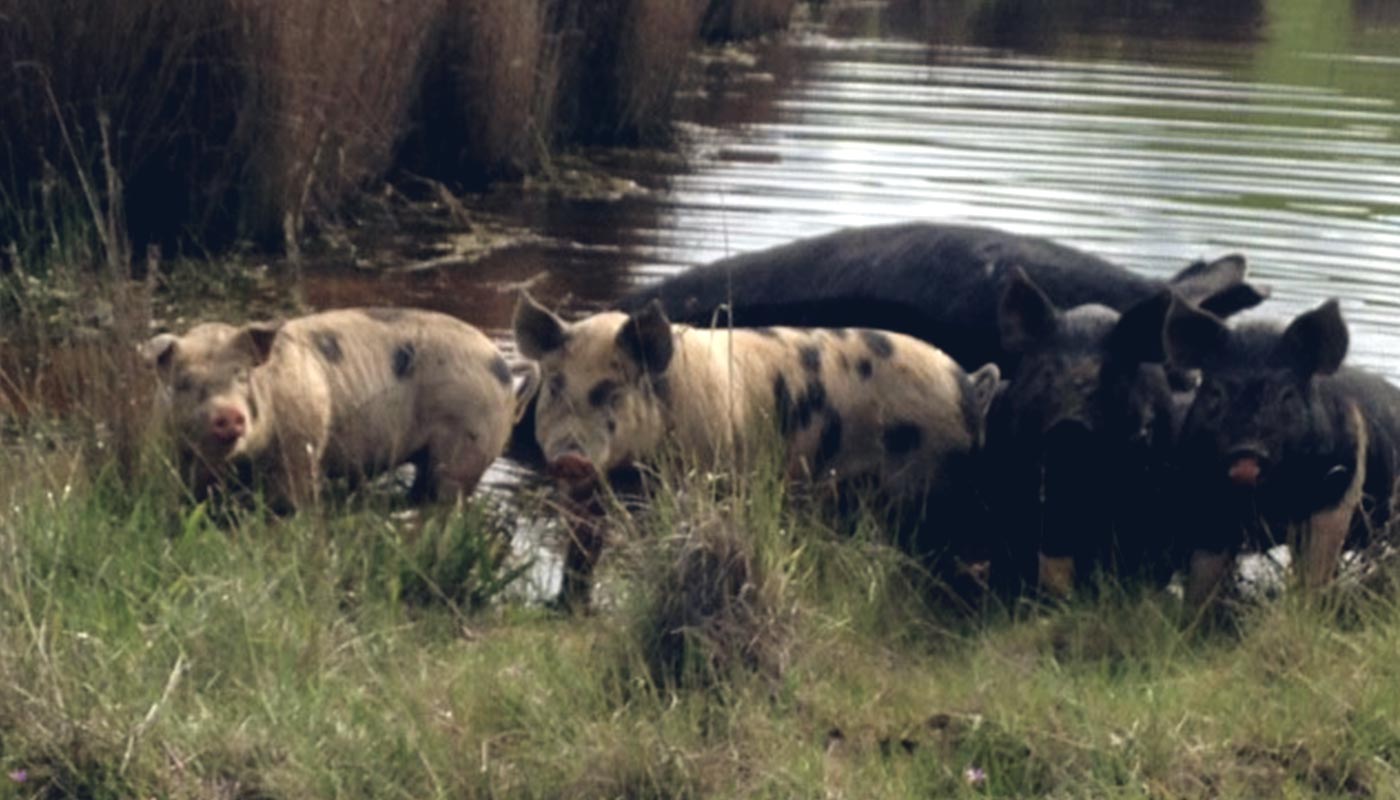SHOP OUR FREE RANGE PORK HERE>
In recent years, the concept of regenerative farming has gained significant attention as a sustainable and ethical approach to agriculture. While it has been widely associated with practices such as crop rotation and soil health, one crucial aspect of regenerative farming often overlooked is its transformative impact on pig farming. Regenerative farming for pigs goes beyond traditional methods, placing the well-being of the animals and the health of the environment at the forefront.
At the heart of regenerative farming for pigs is the commitment to providing them with a life that is both comfortable and natural. Unlike conventional factory farms, where overcrowding and confined spaces are the norm, regenerative farming allows pigs to roam freely on pastures, mimic their natural behaviours, and bask in the sunshine. This stress-free environment not only promotes the animals’ welfare but also results in happier, healthier pigs.
In regenerative farming, the emphasis is on feeding pigs a balanced, nutritious diet that aligns with their natural instincts. Instead of relying on industrial feed, pigs are offered a diverse range of food sources, including pasture plants, forbs, and legumes. By integrating these elements into their diet, pigs enjoy a variety of nutrients that enhance their health, making antibiotics and growth hormones unnecessary.
Regenerative farming isn’t just about the well-being of pigs; it also has a positive impact on the environment. Pigs play a vital role in improving soil health through their natural behaviours like rooting and foraging. Their activities promote soil aeration and help break down organic matter, enriching the soil and supporting the growth of diverse plant species.
Unlike conventional pig farms that generate large amounts of waste and contribute to water pollution, regenerative pig farming employs rotational grazing systems. This practice allows the land to recover naturally between grazing periods, preventing soil erosion and reducing the environmental impact significantly.
Embracing regenerative farming for pigs is not only a win for the animals but also a significant step towards sustainable agriculture and a healthier planet. By prioritising the well-being of the pigs and the health of the environment, farmers can produce pork products that are not only delicious but also come with a sense of responsibility and integrity. As consumers, supporting regenerative farming practices means choosing a path that leads to a better future for animals, our ecosystems, and ourselves. The shift towards regenerative farming for pigs is a powerful testament to the positive change that can be achieved when we work harmoniously with nature.

